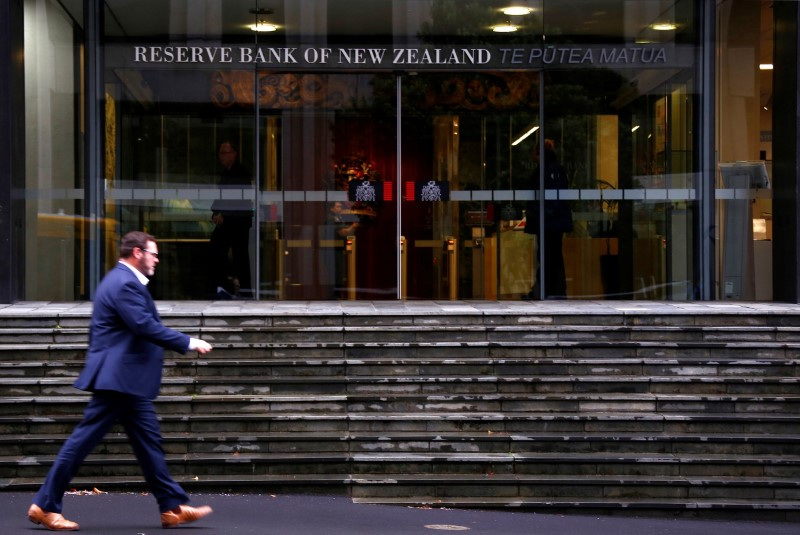By Lucy Craymer
WELLINGTON (Reuters) - New Zealand’s central bank governor Adrian Orr on Friday raised the distinct prospect of cutting rates another 50 basis points by year-end, saying "I would love to be delivering that" in explicit comments setting the course for decisive policy easing.
The Reserve Bank of New Zealand slashed its benchmark rate by a quarter percentage point on Wednesday for the first time since March 2020, taking some market players by surprise, and flagged more cuts over coming months as inflation was nearing its 1% to 3% target.
In a speech to the Wellington Chamber of Commerce, Orr said he was confident that New Zealand had returned to an environment of low and stable inflation.
“There's two more opportunities for two more cuts between now and Christmas and all things going accordingly with the data and what we're talking about, then I would love to be delivering that,” he said.
The central bank chief added his preference was to continue making further cuts through 2025, backing economists expectations for a series of reductions over the next year.
The RBNZ's own guidance saw the official cash rate at 3.85% by the end of 2025 from 5.25% now, while market pricing is betting on a 3.0% handle by then.
A Reuters snap poll released on Thursday, found the majority of economists expect the central bank to cut rates by 50 basis points by the end of the year.
New Zealand joins a global policy easing campaign, including the European Central Bank, Bank of Canada and the Bank of England, as major central banks roll back their hefty hikes made since 2022 to fight red-hot inflation. The U.S. Federal Reserve is widely expected to start cutting rates from next month.
Assistant governor Karen Silk told Reuters in an interview that her decision to support Wednesday's cut had been prompted by multiple pieces of data.
“We've got high frequency indicators that are a lot weaker, and it's not one. They've been mixed signals out of that previously but now it's all kind of pointing to weaker activity in the economy and weaker than we anticipated it,” Silk said.

The RBNZ is forecasting a recession for New Zealand this year, leaving policymakers focused on stabilizing the economy amid weak domestic demand and a challenging global growth environment.
Silk added that all possible rate decisions were “on the table” on Wednesday, including a larger cut, but with New Zealand's policy cycle at a turning point, "there's still some uncertainties that sit out there."